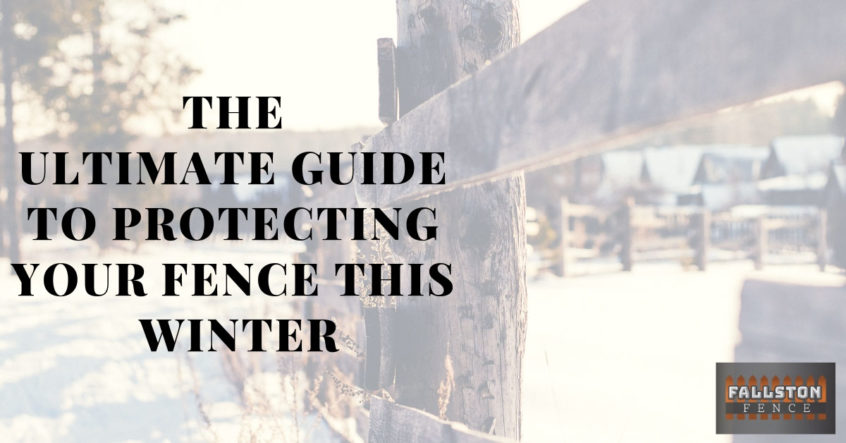A fence can improve the curb appeal of your home, secure your property, and enclose an area in which kids and pets can play. If you’re relying on it to last a long time, you must keep it properly maintained, particularly during the harsh weather of winter. Here are a few tips for cold-season protection, focusing on wood fences.
Know What You Have
Start off by finding out the type of material used for your fence as that can determine the protective measures you can take. Arguably the material requiring the least maintenance is PVC vinyl, which does not need staining or painting, and does not split or splinter. It can also last as long as you own your home. However, it can crack under extreme weather and lacks the charm of wood.
Metal, such as powder-coated aluminum, is more expensive but can contain intricate designs. It stands up to most temperature extremes but does not provide privacy. It also lasts for decades.
A traditional wood fence offers the beauty of natural materials and flexibility in construction. It does require a fence sealer, such as a stain or outdoor paint for wood, to stand up to elements. Spruce can last for 4-7 years, pine for 5-12, and cedar as long as 15-30 years. The best wood for fence applications is one that is treated, which can boost the longevity of pine and spruce to 20 years and cedar to 40 years.
Beware of Ice and Snow
Ice and snow pack a double punch to your fence protection, especially for wood. Their weight may force the material to give way and break, and their moisture can seep into untreated portions, seams, and cracks to warp the wood. The easy solution is to brush any ice or snow off your fences as soon as it snows. A broom can be the most useful tool for doing this.
Check the Base
Tough weather conditions can shift the soil around the base of your fence causing it to become unstable. Melting snow and ice can also threaten the material if they pool at the base of your posts, which can eventually produce rot. Only effective drainage channels can prevent this issue. Check your fence foundation before, during, and after winter to ensure nothing is amiss.
Watch Out for Foliage
If you have overhanging branches of heavy foliage near your fence, they may break off and crash into your fence when strong winds blow. Even a thick timber fence will give way when battered continuously by a heavy tree branch. Before the winter, cut back and remove all these potential hazards.
Call In Professionals
Give your fence a thorough examination before the winter. If you uncover any problems, or if issues arise in the dead of winter, it’s best to call in professionals to come up with an effective solution. It’s best to call them in before the season, so they have time to effect any repairs before winter conditions make problems worse.
If you have any questions or want your fence taken care of by a professional, please give us a call at Fallston Fence. or have it taken care of by a professional? We want to be your go-to experts for residential and commercial fencing.

